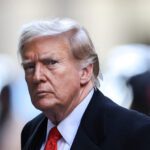As the TikTok ban looms, scheduled to be enforced in January following President Joe Biden’s directive, former President Donald Trump has voiced opposition to the measure, signalling a potential policy reversal should he take office.
- Biden’s TikTok Ban: In April, Biden signed legislation requiring TikTok’s parent company, ByteDance, to divest the app by January or face a ban from U.S. app stores.
- Legal Challenges: TikTok responded by filing a lawsuit claiming the ban is unconstitutional and unfeasible within the set timeline.
- Trump’s Position: Despite previously attempting a similar ban in 2020, Trump reversed his stance after engaging with stakeholders who benefit from the app. He has publicly declared support for TikTok, leveraging it for campaign efforts and amassing a significant following.
Trump’s Influence and Challenges:
- Potential Actions: Trump could choose not to enforce the ban or work with Congress to repeal it if it’s enacted before he potentially assumes office.
- Legal and Political Hurdles: The full implementation of the ban depends on ongoing court rulings and the Supreme Court’s final decision, which could extend beyond the current administration’s term.
- National Security Concerns: The ban stems from longstanding concerns about national security and data privacy regarding TikTok’s operations under ByteDance, which U.S. officials claim poses significant risks.
- Political Dynamics: Trump’s opposition to the ban reflects broader geopolitical tensions and domestic political considerations, particularly as they relate to U.S.-China relations and technological sovereignty.
With the TikTok ban’s deadline approaching just before the potential commencement of Trump’s second term, the former president’s current opposition to the ban introduces uncertainties about its future enforcement and broader U.S. policy on technology and security. The situation remains dynamic, with significant implications for users, the tech industry, and global geopolitics.










